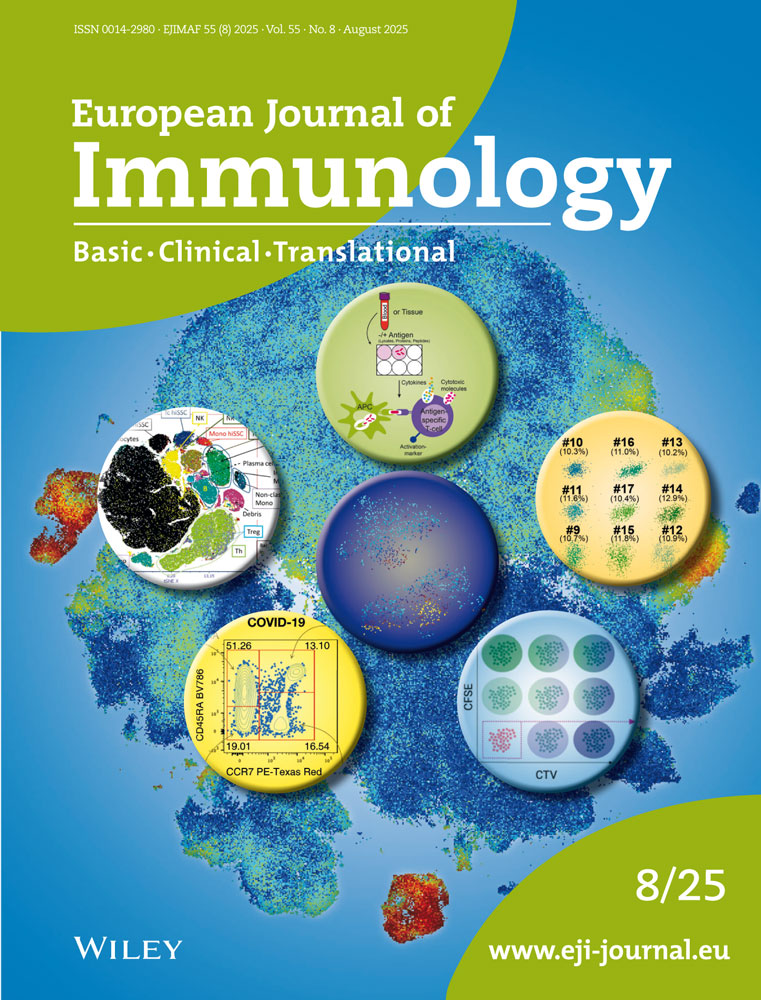Interleukin-10 and interleukin-4 have similar effects on hapten-specific primary antibody responses to penicillin in vivo
Abstract
Interleukin (IL)-10 was initially recognized on the basis of its capacity to inhibit production of interferon (IFN)-γ by T helper (Th)1 lymphocytes; we examined whether this cytokine can bias the primary antibody (Ab) response to the hapten penicillin. We previously reported that BALB/c and SJL mice develop different responses to benzylpenicillin coupled to tetanus toxoid (BPO-TT). The response of SJL mice was characterized as Th2 on the basis of early and high IL-4 mRNA expression and production of BPO-specific Ab of the IgG1 isotype. In contrast, the response of BALB/c mice was characterized as Th1 on the basis of delayed and weaker IL-4 mRNA expression associated with high anti-BPO IgG2a production (Kerdine, S. et al., Mol. Immunol. 1996. 33: 71). In this report, we demonstrate that in naive animals, the level of expression of IL-10 mRNA in LN cells was high in SJL and barely detectable in BALB/c. In addition, injection of BPO-TT resulted in rapid and large increase of IL-10 mRNA expression in SJL. Neutralization of IL-10 in vivo promoted the production of BPO-specific IgG2a in SJL, and injection of IL-10-CHO cells inhibited BPO-specific IgG2a production in BALB/c. Neutralization on administration of IL-10 had effects very similar to neutralization or administration of IL-4. However, co-neutralization of IL-10 and IL-4 in SJL did not evidence additive or synergistic effects of the two cytokines. Administration of IL-10 or IL-4 in BALB/c inhibited BPO-TT-induced expression of IL-12 p40 mRNA without modulating IFN-γ mRNA. Together, these data demonstrate that endogenous production of IL-10 regulates the production of IgG2a Ab in response to BPO-TT and that IL-10, like IL-4, is critical for controlling primary responses to antibiotics which behave as haptenic compounds.




